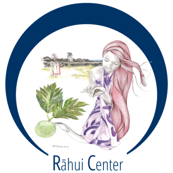Bora Bora
In Bora Bora, our team has been working since 2020 toward the creation of a locally Managed Marine Area. Over a six-month period scientists have led environmental and sociological surveys. In 2021, a new phase will be launched: local stakeholders will be consulted to spatially delineate the limits for the future rāhui site and to design its management rules.
10549
inhabitants in 2017

38 km²
of land

110 km²
of lagoon
Bora Bora is located in the Society Archipelago (Leeward Islands), 250 kilometers northwest of Tahiti. The island, a vestige of a now collapsed volcano, is surrounded by a lagoon that communicates with the ocean through a single pass, or ava in Tahitian: the Teavanui pass. Famous for the beauty of its lagoon and its overwater bungalows, the island ranks among the top luxury tourism destinations in the world. Each year, it welcomes more than 100,000 international tourists, a traffic which represents more than half of the GDP generated by tourism in French Polynesia.
Tourism-oriented activities can represent a significant source of stress or pressure on natural resources and coral reefs; but the sector also represents an opportunity for sustainable development because of the economic benefits it can yield. For instance, local revenue generated by tourism – ever increasing since the 1960’s – has enabled Bora Bora to be one of the 10 Polynesian municipalities (out of 48) ensuring access to drinking water to the whole island’s population. It has also set up a unique wastewater treatment system in French Polynesia (including on motus – reef islets). Because the municipality has implemented a pioneering wastewater treatment system, it has been receiving the Blue Flag label every year over the last 15 years. This eco-label guarantees good water quality.
However, Bora Bora’s lagoon – which was considered as highly fish abundant in the 1970s – has experienced a significant drop in its fish stocks for several years. Local stakeholders indicate that reef fish have decreased both in size and abundance over the years.
Consequently, to assess the ecological state of Bora Bora’s coral reefs and marine resources and to try to identify potential drivers of change the team of the resource center dedicated to Rāhui in French Polynesia carried out, in 2020, several ecological and sociological surveys.

